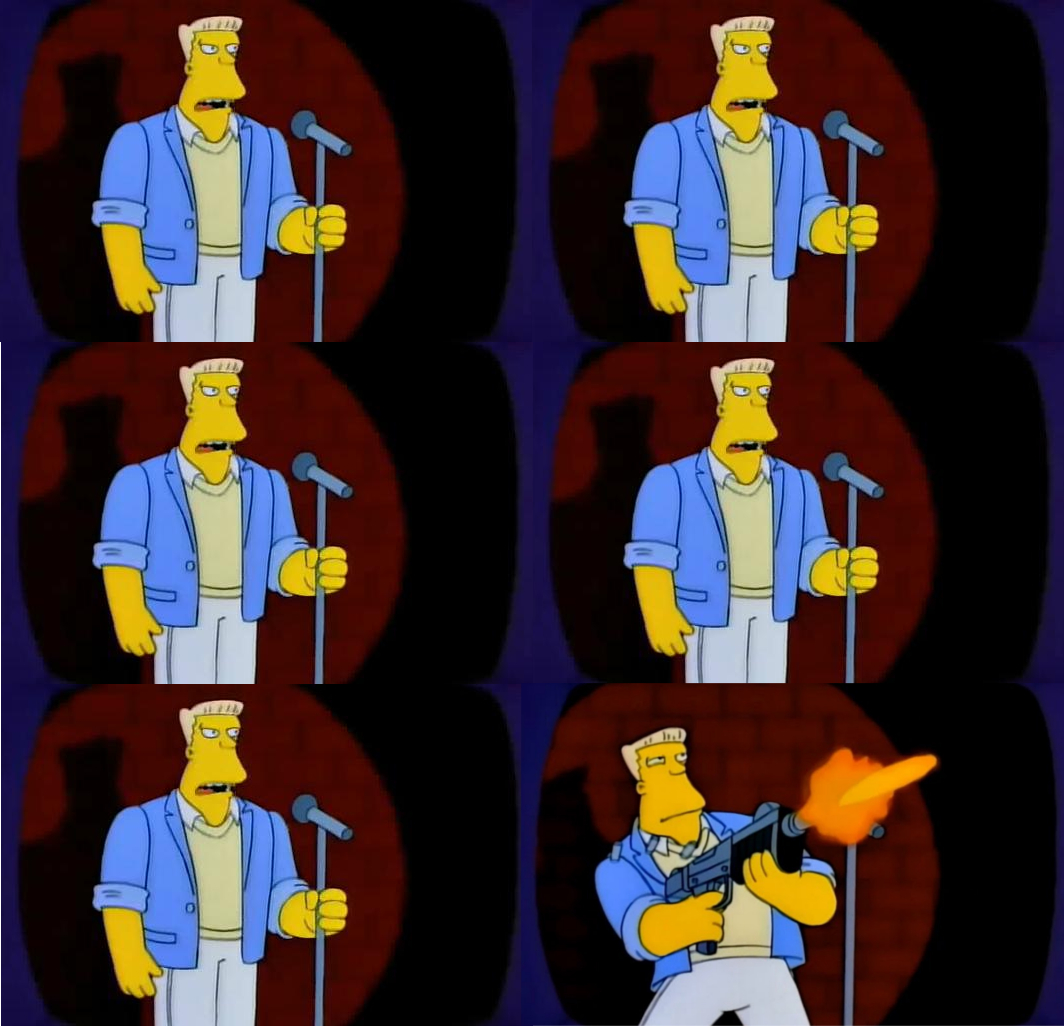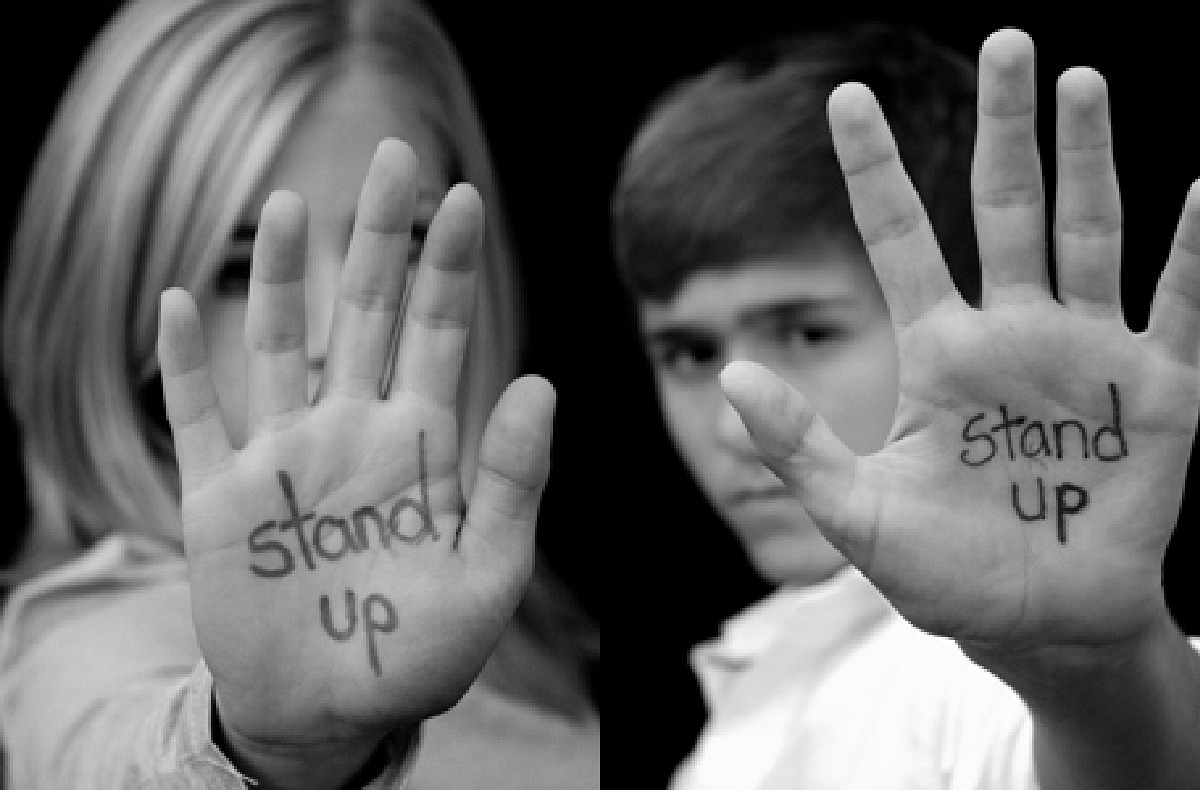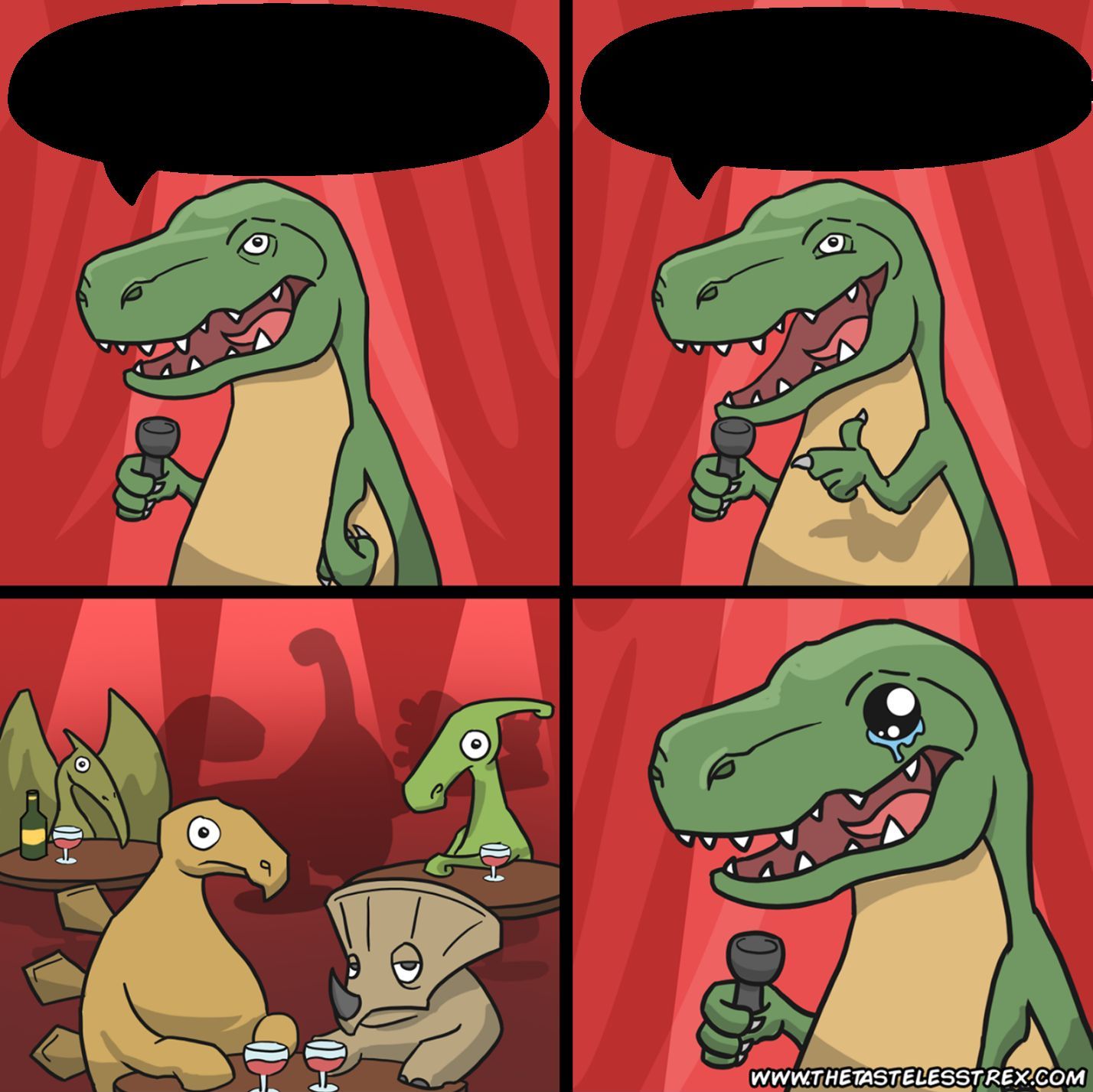Sometimes, a simple idea, a single word, or a familiar action can spark a whole new kind of shared experience online. We see this often with internet humor, where a concept that seems quite plain on its own suddenly finds itself transformed into something widely recognized and often quite funny. The idea of "standing up" is one such concept that, in various forms, has found its way into the collective awareness of internet users, sometimes becoming a "stand up meme" that many people understand and share. It's really quite interesting how a word with such a straightforward meaning can take on so many different layers of expression when placed in a new setting.
You know, the word "stand" has quite a few meanings, more than you might at first think. It can mean to support oneself on one's feet, to be in a position where you are upright. But then, too, it can mean to take a firm position on something, to support a cause, or even to refuse to accept certain behavior. These different ways of looking at "standing" give us a lot of material to work with, especially when we consider how people express themselves and their ideas on the internet. It's almost as if the simple act becomes a symbol for something much bigger.
When we talk about a "stand up meme," we are looking at how these varied meanings get picked up and reused in a way that connects with many people. It might be a visual joke about someone literally standing, or it could be a clever way of showing someone taking a strong stance on an issue. We will explore the different facets of "stand" and see how these might inspire the kind of quick, shareable content that makes us smile or nod in agreement. It's a look at how language and shared culture meet in the digital space, shaping what we find amusing and what we decide to pass along to others.
Table of Contents
- What Does "Stand" Literally Mean?
- Beyond the Physical Act - The Deeper Meanings of "Stand"
- Cultural Echoes - How Does "The Stand" Influence "Stand Up Meme" Ideas?
- Culinary Connections - Could a Restaurant Inspire a "Stand Up Meme"?
- Faces Behind "The Stand" (TV Series)
- Why Do We Share "Stand Up Meme" Content?
- Crafting the Message - What Makes a Good "Stand Up Meme"?
- The Impact of Shared Humor - The Reach of a "Stand Up Meme"
What Does "Stand" Literally Mean?
At its very core, the word "stand" describes a physical state. It means to hold oneself upright on one's feet. Think about it: a person or an animal can be in this vertical state. This is the most basic sense of the word, the one we probably learn first when we are little. It's about being stable, being vertical, not sitting or lying down. This straightforward idea, you know, is the foundation for everything else that the word can represent. It's a simple act, yet it holds so much importance in our daily lives, giving us the ability to move about and interact with the world around us.
When we use "stand" in a sentence to talk about this physical act, it's pretty clear what we mean. For instance, we might say, "We had to stand for the entire performance!" This tells you right away that someone was on their feet for a period of time, perhaps because there were no seats available. This direct meaning is something everyone can picture immediately, which makes it a strong starting point for any kind of communication. It's just a simple way of describing a common human posture, but it's a posture that can communicate many things depending on the situation, really.
This simple, concrete meaning of "stand" is important because it grounds all the other, more abstract meanings. It gives us a visual reference point. When we talk about a "stand up meme," even if the meme is about a figurative idea, it often has some connection back to this basic image of being upright or taking a physical position. That connection, so, helps make the meme relatable and easy to grasp, even if the humor is a bit more complex. It's the kind of basic action that everybody does, which makes it a good candidate for shared cultural references.
Beyond the Physical Act - The Deeper Meanings of "Stand"
Beyond simply being upright, "stand" carries a lot more weight. It can represent a position, a belief, or even a form of resistance. When someone says they "stand for freedom of the press," they are expressing a strong commitment to a particular principle. They are not just physically standing there; they are asserting a belief, showing their support for an idea that they hold dear. This kind of "standing" is about conviction and principle, which, you know, is a very different kind of strength than just being able to balance on your feet. It's a mental and moral posture.
The word also expresses a refusal to accept something. If we say, "We will not stand for impertinent behavior," we are making it clear that such actions are unacceptable to us. This is about drawing a line, asserting boundaries, and showing that certain conduct will not be tolerated. It's a declaration of resolve, a statement of what one will or will not permit. This meaning of "stand" speaks to a kind of inner firmness, a willingness to hold one's ground even when faced with something disagreeable. It's a way of expressing strong disapproval, quite effectively.
These deeper meanings of "stand" are quite powerful. They move beyond the physical into the realm of values, ethics, and personal resolve. When a "stand up meme" touches upon these ideas, it can become a way for people to express their own opinions or to show solidarity with a particular viewpoint. It's about taking a position, more or less, even if that position is just expressed through a humorous image or a short piece of text. The word itself, with its various layers of significance, gives creators a lot of room to play with ideas and feelings, which is useful for creating content that connects with many different people.
Cultural Echoes - How Does "The Stand" Influence "Stand Up Meme" Ideas?
The concept of "stand" also appears in popular culture, adding another layer to its meaning. There is, for instance, a well-known story called "The Stand," which has been adapted into a television series. This story, you know, involves a struggle between good and evil, where characters must take a firm position in a post-apocalyptic world. The very title suggests a kind of moral battle, a moment where people must decide where they truly belong and what they believe in. This particular story, with its themes of resilience and difficult choices, offers a rich background for thinking about what it means to "stand" in a larger sense.
The television series, created by Josh Boone and Benjamin Cavell, features actors like James Marsden, Odessa Young, Alexander Skarsgård, and Whoopi Goldberg. These individuals bring the characters to life, showing their struggles and their moments of decision. The story's focus on people taking a firm position against overwhelming odds, or choosing to align with certain principles, could certainly inspire ideas for a "stand up meme." It's about characters literally and figuratively taking a stance, which is a powerful image for shared online content. This narrative, quite honestly, explores the depths of human courage and conviction.
Similarly, the song "Stand!" by Sly and the Family Stone carries a powerful message of unity and perseverance. The song encourages listeners to be strong, to be themselves, and to "stand" for what is right. This musical piece, with its uplifting message, speaks to the idea of collective strength and individual determination. It's another cultural reference point where the word "stand" is used to convey something much more than just a physical posture. A "stand up meme" drawing from such a song might evoke feelings of empowerment or collective action, which, you know, can resonate strongly with people looking for ways to express shared sentiments.
Culinary Connections - Could a Restaurant Inspire a "Stand Up Meme"?
It might seem a little unusual, but even a restaurant can contribute to the broader idea of "stand." There's a restaurant called "The Stand" with locations in California, including one in San Diego. This establishment, you know, focuses on American classics, offering a diverse selection of things like burgers, sandwiches, wraps, salads, and hot dogs. They even have various sides to go with your meal. The name itself, "The Stand," suggests a place where people might gather, a place that has established itself, perhaps even a place that stands out for its food. It's a very simple, direct name for a food spot.
When we think about how food and dining experiences become part of online humor, it's not hard to see how a place like "The Stand" could inspire a "stand up meme." Perhaps it's a joke about waiting in line, or a humorous take on their specific menu items. People often share funny observations about their everyday lives, and eating out is a big part of that. Ordering with seamless, for example, to support local restaurants is a common activity, and any part of that experience could become material for a meme. It's almost like the restaurant's name, in a way, gives it a bit of an edge for being memorable.
A "stand up meme" connected to a restaurant could be about the joy of good food, the experience of a particular dish, or even a playful jab at something specific to the place. The fact that this restaurant redefines American classics suggests a certain confidence, a "stand" in their culinary approach. This idea of taking a classic and making it their own could be a subtle source of inspiration for a meme that celebrates uniqueness or a fresh take on something familiar. It's a reminder that humor can come from just about anywhere, even from a place that serves really good burgers, actually.
Faces Behind "The Stand" (TV Series)
When we talk about the television adaptation of "The Stand," it is worth mentioning the people who brought this story to the screen. The series itself was created by Josh Boone and Benjamin Cavell, who helped shape the narrative for a new audience. Their work involved putting together the vision for this sprawling tale of good versus evil. These creative minds, you know, are responsible for translating a complex book into a visual experience that many people could watch and discuss. It's a big undertaking, bringing such a well-known story to life.
The characters in the series were brought to life by a group of talented performers. These actors play a big part in how viewers connect with the story's themes of taking a firm position and facing difficult circumstances. Their portrayals help us understand the different ways people might "stand" in the face of adversity. This group of individuals, more or less, made the story feel real and immediate for those watching at home. It's interesting how the faces we see on screen become associated with these powerful ideas of conviction and moral fortitude.
Here are some of the key people involved in bringing "The Stand" television series to audiences:
| Name | Role in "The Stand" (TV Series) |
| Josh Boone | Co-Creator |
| Benjamin Cavell | Co-Creator |
| James Marsden | Actor |
| Odessa Young | Actor |
| Alexander Skarsgård | Actor |
| Whoopi Goldberg | Actor |
Why Do We Share "Stand Up Meme" Content?
People share "stand up meme" content for many reasons, often because it connects with something they feel or believe. Sometimes, it is simply because the meme is funny, a quick visual joke that makes them laugh. Other times, it is because the meme expresses a strong opinion or a sense of solidarity with a cause. If a meme shows someone taking a firm position, it might resonate with someone who feels the same way about a particular issue. It's a way of saying, "Yes, I agree with this," or "This is how I feel, too." That kind of shared feeling is a big part of why these things spread, you know.
These pieces of content can also serve as a form of social commentary. A "stand up meme" might playfully highlight a common frustration, or it might offer a humorous take on a serious situation. It gives people a way to talk about things without being overly formal or serious. The lightness of a meme can make a strong point more approachable, allowing ideas to spread more easily. It's almost like a shorthand for a shared experience or a common sentiment, allowing for quick communication, honestly.
Moreover, sharing a "stand up meme" can be a way of building community. When you share something that resonates with others, it creates a sense of connection. It shows that you are part of a group that understands a particular type of humor or shares a specific viewpoint. This feeling of belonging is a powerful motivator for sharing content online. It's a simple act that helps people feel less alone in their thoughts and feelings, which is very important for many, as a matter of fact.
Crafting the Message - What Makes a Good "Stand Up Meme"?
What makes a "stand up meme" truly effective? It often comes down to simplicity and relatability. The best ones take a straightforward idea, like the act of being upright or taking a firm position, and present it in a way that is immediately recognizable and often quite funny. It could be a picture of someone literally standing in an unexpected place, or a clever play on words that highlights a strong opinion. The key is that it needs to be easily understood without a lot of explanation. It's about getting the message across quickly, you know, in a way that sticks with people.
A good "stand up meme" often uses a visual element that reinforces the idea of "standing." This might be a person standing tall, a character refusing to move, or even an object that appears to be standing firm. This visual anchor helps people grasp the humor or the message quickly. Combining this with a short, punchy piece of text or a caption can create a powerful effect. It's about finding that sweet spot where the image and the words work together to create something memorable, which is a bit of an art form in itself.
The humor in a "stand up meme" might come from irony, exaggeration, or simply observing something familiar in a new light. It could be a reference to a well-known cultural item, like a movie scene where a character takes a dramatic stance. The element of surprise or the unexpected twist can also make a meme more shareable. Ultimately, it needs to spark a reaction, whether that is a laugh, a nod of agreement, or a feeling of recognition. It's about creating a little piece of content that encourages people to pass it along, which is basically the goal of any meme, right?
The Impact of Shared Humor - The Reach of a "Stand Up Meme"
The impact of a "stand up meme," or any widely shared piece of online humor, can be quite significant. These small bits of content have the ability to spread ideas, feelings, and jokes across vast networks of people very quickly. They can help to lighten the mood, offer a moment of shared amusement, or even quietly influence public opinion on certain topics. When a meme that relates to "standing up" for something goes viral, it shows that many people are thinking about that idea, even if they are expressing it in a lighthearted way. It's a powerful way to get a point across, honestly.
These memes also help to shape our collective cultural understanding. They become part of the shared language of the internet, where a simple image or phrase can evoke a complex set of meanings. The different ways the word "stand" is used – from physical posture to moral conviction – get woven into these online expressions. This process helps to keep these meanings fresh and relevant in people's minds. It's almost like a continuous conversation, where people are constantly adding new layers of meaning to familiar words and concepts, you know.
Ultimately, the popularity of a "stand up meme" speaks to our human desire to connect, to express ourselves, and to find humor in the world around us. Whether it is a joke about literally standing for a long time or a visual representation of taking a strong stance on an issue, these memes offer a quick and accessible way to share a piece of our thoughts and feelings with others. They are a testament to the creative ways people use simple ideas to build shared experiences online. It's a pretty interesting phenomenon, all things considered, how something so simple can have such a wide reach.
This article has explored the various meanings of the word "stand," from its basic physical definition to its more profound cultural and figurative uses. We looked at how these different interpretations, including references to the TV series "The Stand," the song "Stand!," and even a restaurant named "The Stand," can inspire and inform the creation of a "stand up meme." The discussion also touched upon why people share such content, what elements make a "stand up meme" effective, and the broader impact of shared humor in the digital world.



